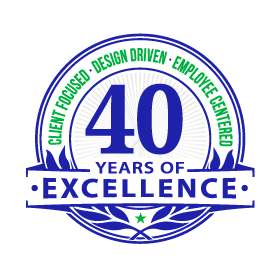KCW chief of surveys reflects on proudest moments and key advice for aspiring surveyors.
“Follow in the footsteps of the surveyor before you,” said Matthew, Chief of Surveys at KCW Engineering.
After nearly 19 years in the industry, Matthew has acquired many tips along the way, but today he shares his greatest insights gained through the years. From experience, Matthew determined two key factors for success in the industry – mentorship & pragmatic thinking.

KCW takes land surveying to new heights.
MENTORSHIP
Growth in the surveying field boils down to willingness. Mentors who are willing to teach, mentees who are willing to learn and surveyors who are willing to collaborate. Just as he did, Matthew advises aspiring surveyors to surround themselves with experienced mentors, and absorb all the knowledge they have to offer.
One mentor, an original founder of KCW, was willing to put pen to paper and provide Matthew with access to his wealth of knowledge and first-hand experience. Bill coached Matthew in learning the art of boundary lines, the skill of topographic surveys and the wisdom that remains pertinent today.
Matthew attributes his successes and strengths to the generous mentors who taught him during his early career. “I am where I am because of them,” said Matthew. Today, he is glad to pay it forward by mentoring a survey crew of his own.
PRAGMATIC THINKING
According to Oxford Dictionaries, pragmatic is defined as “dealing with things sensibly and realistically in a way that is based on practical rather than theoretical considerations.” In the age-old discussion of theory vs application, pragmatic thinking can create a practical advantage in the surveying field.
Surveyors have a duty of care to the public to decipher what is correct, calculate and record accurate information, and collaborate with past surveyors if there are discrepancies or misunderstandings.
Maryland Surveyor’s Tip: Surveying on the East Coast, specifically in Maryland, is different than in the West. Maryland survey law and practices are based closely on old English Common Law, and therefore, boundary line determination requires extensive deed research, field investigation, and an attempt to interpret the original intent of the historical parties involved and the decisions of the preceding surveyors.
The ability to think both logically and practically allows surveyors to problem solve effectively. They can better determine what degree to measure to, what information is necessary to calculate and how to get the most accurate and useful results possible for the project at hand.
In honor of National Surveyors’ week, be sure to thank a surveyor you know for the important work that they do!
National Surveyors’ Week



